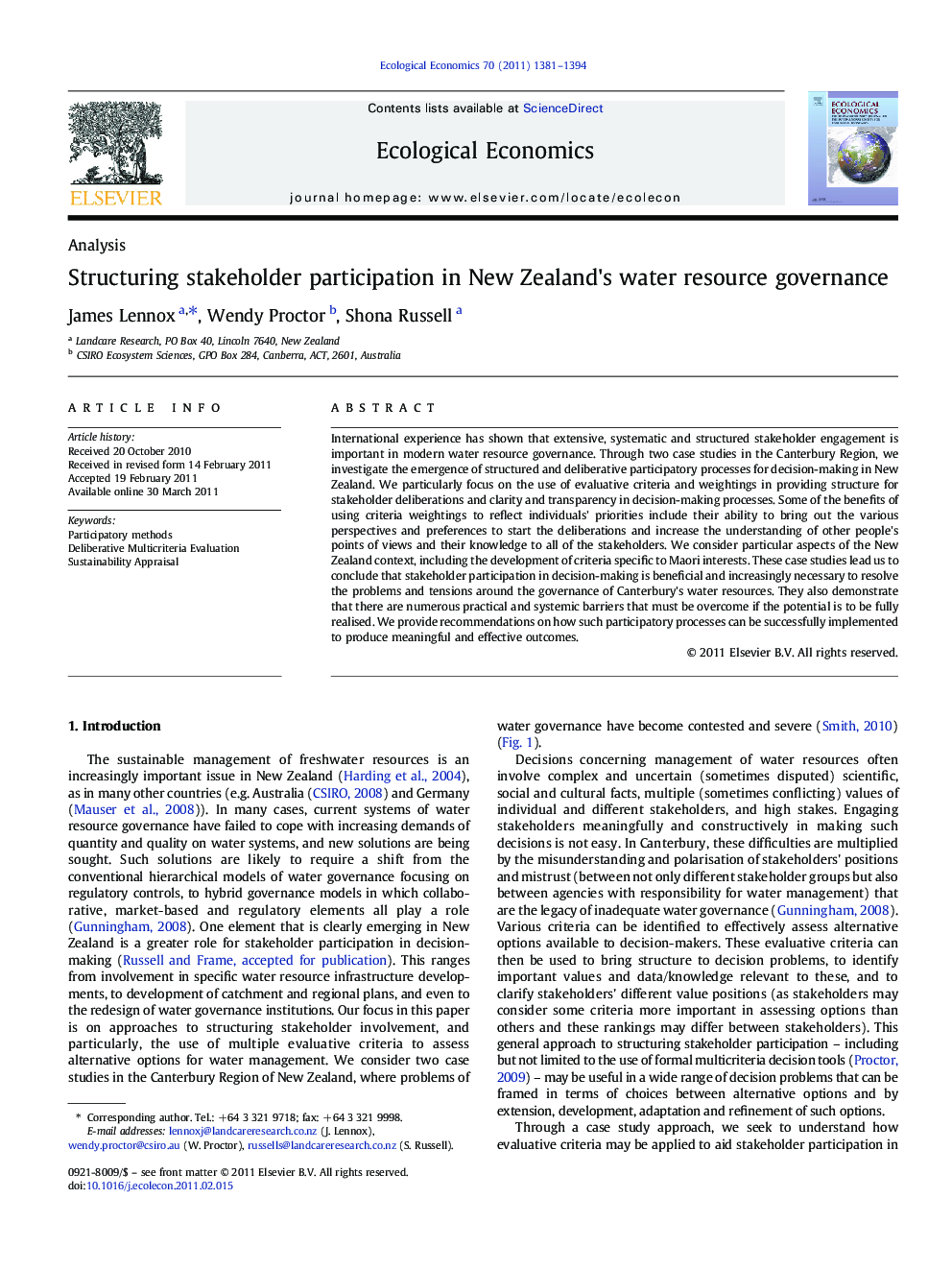| Article ID | Journal | Published Year | Pages | File Type |
|---|---|---|---|---|
| 5050609 | Ecological Economics | 2011 | 14 Pages |
International experience has shown that extensive, systematic and structured stakeholder engagement is important in modern water resource governance. Through two case studies in the Canterbury Region, we investigate the emergence of structured and deliberative participatory processes for decision-making in New Zealand. We particularly focus on the use of evaluative criteria and weightings in providing structure for stakeholder deliberations and clarity and transparency in decision-making processes. Some of the benefits of using criteria weightings to reflect individuals' priorities include their ability to bring out the various perspectives and preferences to start the deliberations and increase the understanding of other people's points of views and their knowledge to all of the stakeholders. We consider particular aspects of the New Zealand context, including the development of criteria specific to Maori interests. These case studies lead us to conclude that stakeholder participation in decision-making is beneficial and increasingly necessary to resolve the problems and tensions around the governance of Canterbury's water resources. They also demonstrate that there are numerous practical and systemic barriers that must be overcome if the potential is to be fully realised. We provide recommendations on how such participatory processes can be successfully implemented to produce meaningful and effective outcomes.
Research HighlightsâºStructured stakeholder engagement is important in water resource governance. âºEvaluative criteria provide structure and transparency to decision-making. âºMulticriteria evaluation methods have demonstrable potential in New Zealand.
